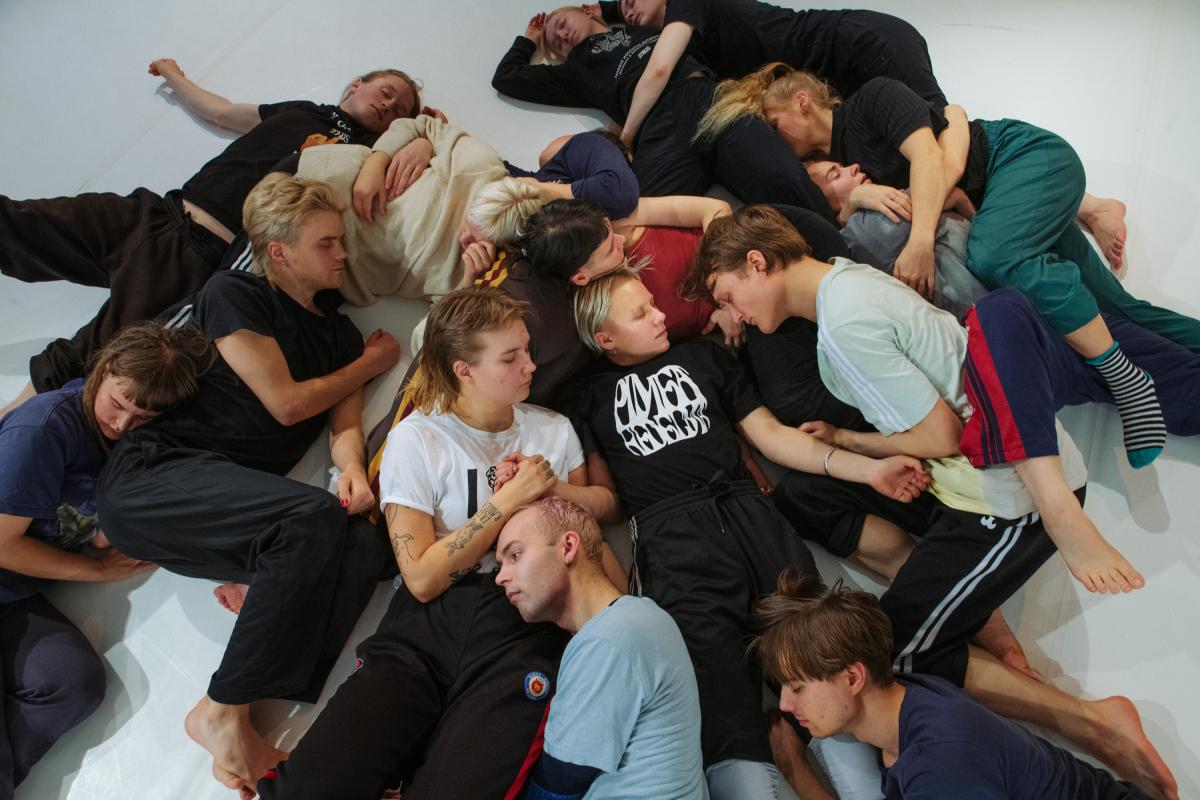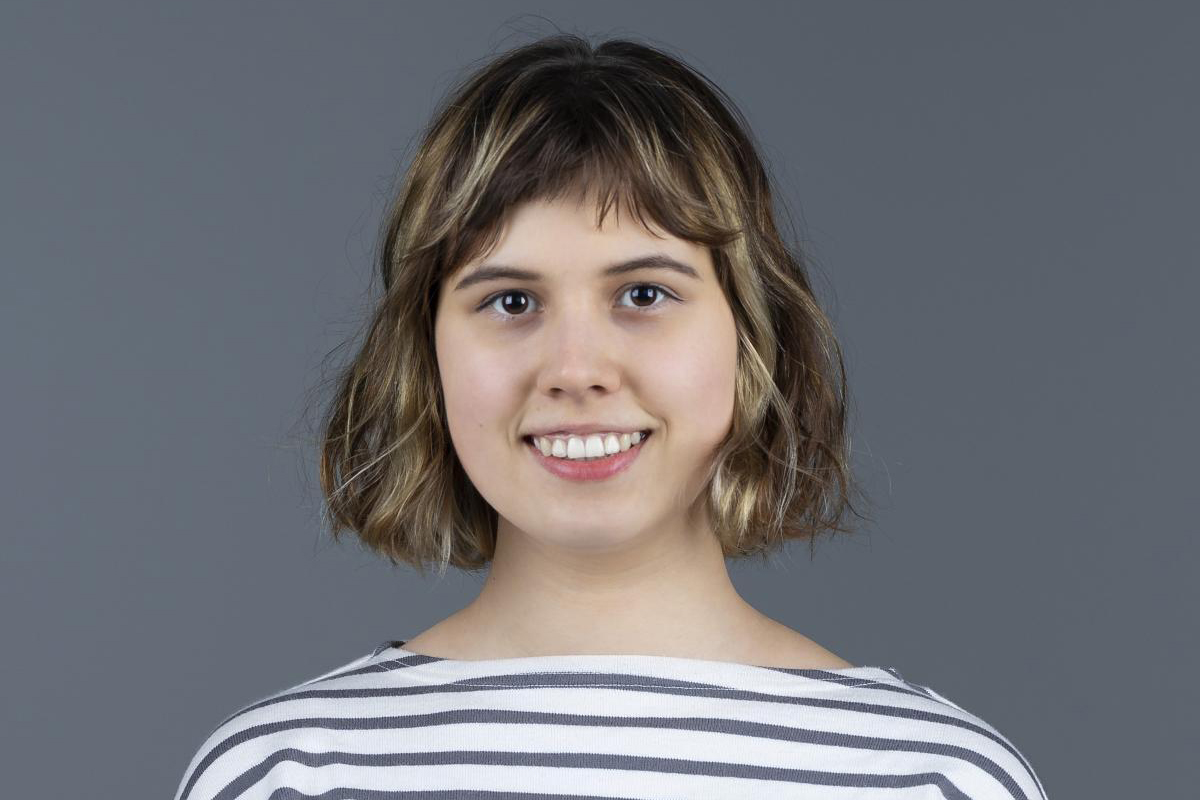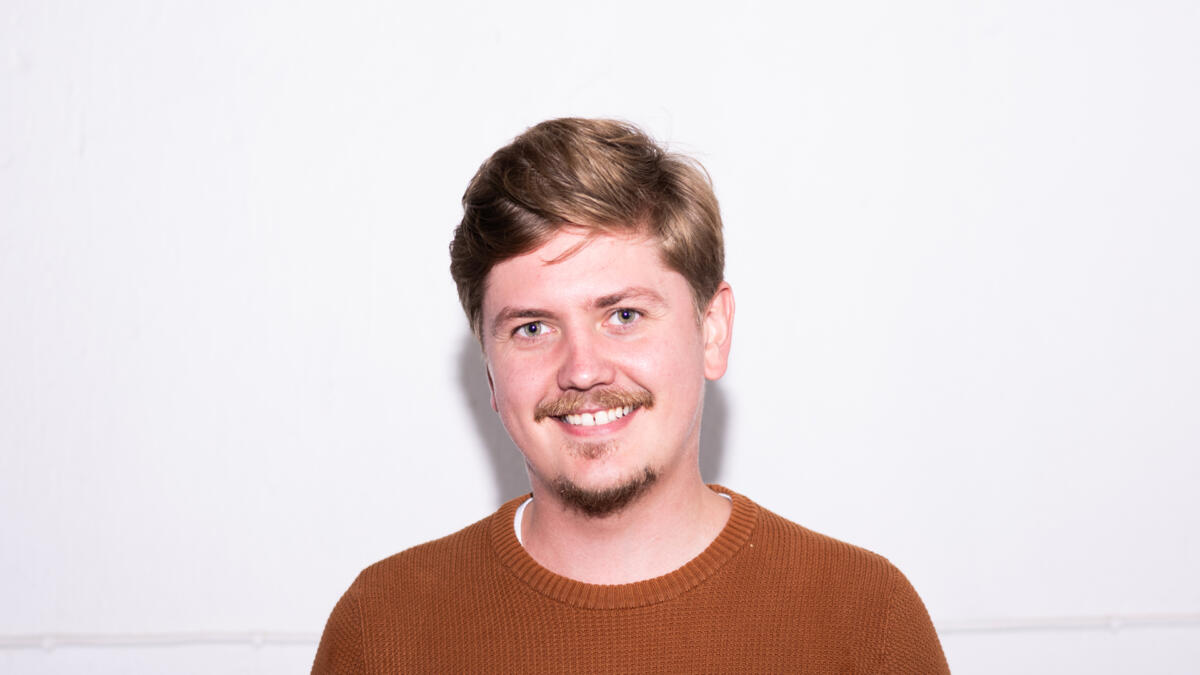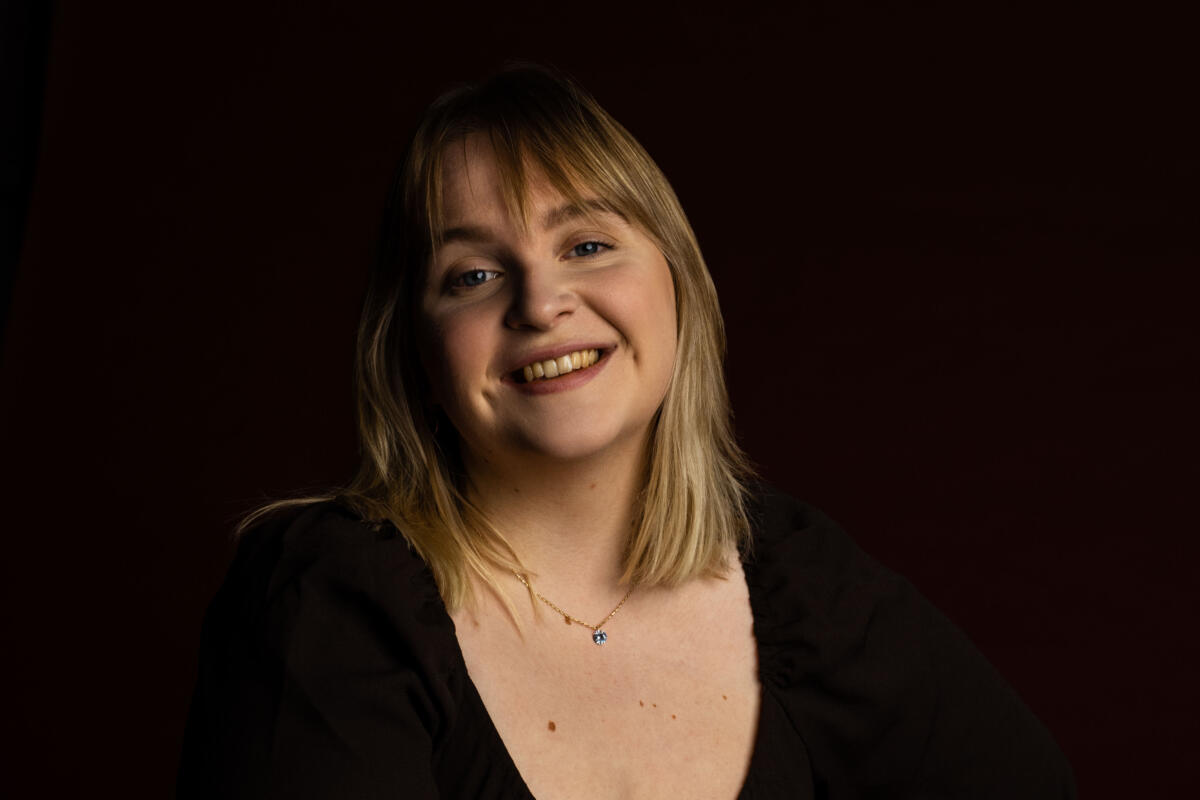Financial worries weigh on students’ daily lives, but enthusiasm for art flourishes
For many aspiring artists, art studies are the dream come true. So, what is it like when the entrance exams are over and art studies have become part of the everyday life? We interviewed one student from all three academies of Uniarts Helsinki, and asked them about their everyday life and their relationship to making art.

Petteri Lassila started his master’s studies at the Theatre Academy in the autumn of 2023. He has already studied acting in Los Angeles and he feels that the passion for art is present in his everyday life.
“I get something out of every course. Enthusiasm for making art can change its form, but I believe that childlike curiosity is valuable in this work. Exploring different art forms inspires my own art-making,” says Petteri Lassila, a master’s student in acting at the Theatre Academy.
Viivi Tigerstedt, who studies classical accordion and chamber music at the Sibelius Academy, will graduate with a master’s degree next spring. She looks forward to stepping into working life. Art studies can be very intensive, which can both increase and curb enthusiasm for one’s work. Tigerstedt is enthusiastic about her art, especially when she has a good workflow and is not too burdened.
“Music has always been bigger than life itself for me. It is rewarding to work hard and learn a lot in a short time. However, if there is too much work, it turns into an obligation. I do not wait for inspiration, because to master my instrument I routinely have to practice for many hours every day,” says Tigerstedt.
At the beginning of your studies, you can still look for your own mode of expression. The Academy of Fine Arts student Anastasia Lapteva began her studies three years ago directly after high school, and she is still experimenting with different forms of visual art. Lapteva is from St. Petersburg, Russia, and she has lived in Finland since she was 16 years old. She is currently studying printmaking and is considering the possibilities of researching artificial intelligence in art. Lapteva will soon complete her bachelor’s degree, and she would like to continue with a master’s degree.

“My mother is an artist, and I have always been interested in art and design. My studies have deepened my art theoretical thinking. I would not like to choose just one art form, even if it made commercial sense. Interdisciplinarity between art forms interests me, and the opportunity to try different techniques has been important,” Lapteva says.
Intensive studying challenges time management
Petteri Lassila started acting in high school in Helsinki and was able to do some semi-professional jobs after school.
“In 2017, I participated in an interesting acting summer course in Los Angeles, and it turned out to be a life-changing experience for me. I got into an acting school and stayed in the United States for about five years. After my studies, I applied to the master’s program for acting at Uniarts Helsinki, because I wanted to deepen my identity as an artist and study and act in my mother tongue,” says Lassila.

Studying at Uniarts Helsinki has been very different from the United States, and Lassila has been really satisfied with his studies.
“We can choose our courses freely and the courses are not given grades, but studying is investigative and exploratory. On the other hand, the studies are very intensive. I do not have a family, but it could be difficult to combine family life with these studies that require time and concentration. It’s inspiring to work with like-minded artists, and I have learned to trust my own process even more,” says Lassila.
The event of this autumn at the Theatre Academy was the students’ takeover of Uniarts Helsinki as a countermeasure against the government’s retrenchments that will affect the students’ livelihoods.
“The livelihood of students has been a big concern. Our studies are demanding, and the lack of money brings additional worries,” says Lassila.

Viivi Tigerstedt is the president of the Uniarts Helsinki’s student union, and she is worried about how tired the students are. According to the surveys, the students of Uniarts Helsinki are stressed.
“Personally, I do have free time between courses and independent training, but the timing varies. It is hard to plan other things in my life. It is hard to get by on the study grant, so you also need to work, but combining work and studying at Uniarts Helsinki is almost impossible. The students’ financial situation is really challenging, and we talk about it a lot among ourselves. More life and time management tools are needed,” says Tigerstedt.
Anastasia Lapteva is worried about transitioning to working life after her studies. Right now, the political situation between Finland and Russia is so challenging that it is difficult for her to think about her future.
“I don’t really know what I would do for work. I am considering doing some other work part time, so that I can make art for passion. That way, I could shift the focus from making money to making art freely. On the other hand, I am interested in the role of art in community. I live in Kontula, and there are many community art projects there that are inspiring,” says Lapteva.
She thinks a lot about how she can make art with limited resources after school resources such as photography equipment are no longer available.
“Fortunately, we have a course coming later that will advise us on applying for grants and internships,” says Lapteva.
Art discussion takes place among everyday routines
For Sibelius Academy students, every week is different. Tigerstedt’s day might start with a private lesson, after which she reads sheet music or practices on her own, and in the afternoon, there are chamber music practice sessions with other musicians. The studies include a lot of repetition and mastery of the instrument. Sometimes there is even a concert in the evening.
“The nature and intensity of the studies are in a class of their own at Uniarts Helsinki. The profession and education of a musician is hard, but I have never considered any other career. I play accordion for many hours every day. We need a lot of self-directedness and initiative, because there is very little supervised teaching at the end of the studies. Private lessons are important, and our teachers are really professional,” says Tigerstedt.
Tigerstedt started playing the accordion at the music play-school at the age of seven.
“As a child, I also played folk music, but nowadays I mainly focus on classical music. I already took classes at the Sibelius Academy when I was in high school, so it seemed obvious to apply here to study,” says Tigerstedt.
The Theatre Academy often has courses that are 1–4 weeks long, which means that the courses change quickly. Master’s studies also include the completion of an artistic project and a written thesis.
“For example, today I had a singing lesson in the morning, after which I will go to a work life seminar, where we go over some possibilities of our work life and well-being at work. This autumn, we have had a joint course with students from the University of Tampere and the University of Oslo in Tampere and Helsinki,” says Lassila.
At the Academy of Fine Arts, the students’ day includes both courses and independent work. Sometimes Lapteva spends a whole week at the university on an intensive course from 9 am to 4 pm, but sometimes she only comes to the university after lunchtime and the rest of the time she works by herself in her studio.
“Passion for my work comes and goes. I am not usually interested in politics, but my interest in artificial intelligence inevitably brings a societal level to my work. With my fellow students, we often discuss art-making, exhibitions and works,” says Lapteva.
Tigerstedt says that thinking about the meaning of art is not always uppermost in a musician’s everyday life.
“Among the classical musicians, we have fewer meta-discussions about the meaning of art, because we have plenty of museum work of sorts that is related to the performance of old music. We reassess, for example, works from the 17th century, which is a kind of time travel. In my social network, however, we talk about making music all the time,” says Tigerstedt.
At the Theatre Academy, reflecting on the meaning of one’s own work is an essential part of the studies. Lassila discusses the importance of an actor’s work in society with his fellow students both during courses and in his free time. As an optimist, he follows with enthusiasm the changes in the field of acting.
“In addition to career dreams, we have discussed, for example, the impact of artificial intelligence on our industry. With streaming services, the supply of performing arts has increased tremendously, and with these different platforms, our job description can change a lot. In recent years, the quality of Finnish film and television production has risen enormously, and as a result, I hope to find new opportunities even for myself,” says Lassila.
Text: Päivi Brink